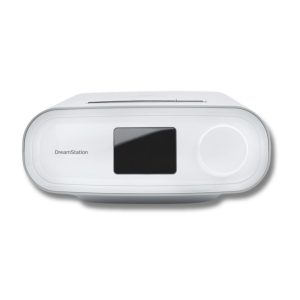Fact Checked
Intus Healthcare’s writers, customer service team, and sleep experts review and ensure this information is accurate.
Last updated on March 19th, 2025 at 01:04 pm
Acid reflux in sleep
While acid reflux is not considered a life-threatening condition, it can lead to other health complications. These may include dental problems, sleep conditions and laryngitis.
This article will explain all you need to know about acid reflux and how it affects sleep.
Table of Contents
What causes acid reflux?
Acid reflux is a common condition which occurs when stomach acid flows back into the oesophagus, causing discomfort. This may feel like food or stomach acid is coming up your throat. As this acid moves up, it can cause a burning feeling in your chest or throat. At times, it might even reach your mouth, giving you a sour or bitter taste.
It can happen because the lower oesophagal sphincter (LES) doesn’t close properly or opens too often. The LES is a ring of muscle that usually stops stomach contents from moving upwards into the oesophagus.
Occasional acid reflux is normal, especially after certain foods or beverages. However, frequent or severe episodes may indicate Gastroesophageal Reflux Disease (GERD).
How long does acid reflux last?
The duration and severity of acid reflux varies from person to person. In some cases, episodes can be brief, lasting only a few minutes. However, in others, it may be more severe, lasting for 30 minutes to an hour or more for some people.
Symptoms of acid reflux
- Difficulty sleeping
- Heartburn
- Chest pain
- Stomach acid or small bits of food that come back up (regurgitation).
- Sore throat
- Difficulty swallowing
- Croaky voice
- Hiccups
- Problems swallowing
- Bloating and belching
- Feeling sick
- Waking up coughing
What causes acid reflux at night?
You may feel like your acid reflux is worse at night when you’re lying in bed. This is because acid is more likely to come up when lying down. During the day, you’re typically upright and swallow often, helping to keep the stomach acid down. When swallowing, your saliva neutralises the stomach acid, but when sleeping, you swallow less often and often produce less saliva.
As you swallow less during the night, the acid lingers in the oesophagus for longer periods, increasing the risk of acid reflux.
Acid Reflux and Sleep Apnoea
Acid reflux can be problematic during sleep and may contribute to developing the sleep condition Obstructive Sleep Apnoea (OSA).
What is Sleep Apnoea?
OSA is a common condition in which breathing repeatedly stops and starts during sleep. It is caused by the relaxation of the throat muscles during sleep, creating an airway obstruction. This obstruction stops breathing, limiting the amount of oxygen in the body. The body automatically wakes up as the brain realises you’re not breathing, so your muscles tighten to receive airflow.
In-Home Sleep Apnoea test
Do you have Sleep Apnoea symptoms? A quick way to determine if you have the sleep condition is by taking our at-home sleep study.
The noninvasive test takes just one night to complete. Our in-house sleep clinicians will then analyse your sleep data to diagnose Sleep Apnoea.
Your results are with you within two working days of completing the test, allowing you to start treatment quickly if the sleep disorder is confirmed.
Our test device is medically approved and offers comparable testing accuracy to an overnight sleep study conducted at a sleep clinic.

The link between the two
Acid reflux often leads to difficulty sleeping, as many people find their symptoms are worse during the night. The impact of acid reflux during sleep can contribute to the development and increased severity of OSA.
Here are a few reasons why the conditions are linked:
Breathing changes: During an OSA breathing disruption, the air pressure in the lungs changes, which can lead to acid reflux. You’ll likely breathe harder when breathing restarts, which can draw up stomach acid.
Obesity: Both acid reflux and Sleep Apnoea are more common in people who are overweight or obese. Excess weight can put pressure on the abdomen, increasing the likelihood of acid reflux and also contributing to the development of OSA.
Inflammation: Both conditions can cause inflammation and irritation in the upper airway and oesophagus. OSA upper airway inflammation may exacerbate symptoms of acid reflux, while acid reflux can irritate the throat and exacerbate Sleep Apnoea symptoms.
OSA affects millions of people worldwide, and symptoms commonly include loud snoring, shortness of breath, gasping in sleep and daytime fatigue.
The breathing difficulties associated with acid reflux can also result in issues such as tracheomalacia, sinusitis and asthma. It is also closely linked to dental problems as acid erodes teeth, leading to tooth decay and gum disease.
Intus Plus – CPAP therapy for just £49 per month
Our Intus Plus subscription service includes leading CPAP equipment, regular clinical consultations, remote monitoring, a success guarantee and more!
Our affordable service makes treating Sleep Apnoea simple. With our support, we’re confident that you will start enjoying your sleep and daily life again.

How to prevent acid reflux while sleeping
You can make numerous lifestyle changes to reduce the symptoms of GERD and feel better during the day and night. These include:
- Smaller meals: Eat smaller meals rather than larger ones throughout the day. This helps keep the stomach less full, reducing the risk of reflux.
- Eating earlier: Eating late at night means there is less time for your food to digest, increasing the risk of food returning and causing discomfort. It would help to allow at least 2 hours for your food to digest before lying down.
- Avoid fizzy drinks: Carbonated drinks can trigger burping and send acid into the oesophagus, worsening your symptoms. Choose to drink water or squash instead.
- Don’t move quickly after eating: Allow your body to relax after eating rather than doing lots of exercise. A light walk is fine, but strenuous activities can increase the acid.
- Wear loose clothes: Tight clothing is uncomfortable and can make breathing difficult, increasing the likelihood of acid reflux.
- Change your sleeping position: Sleeping on an incline, with your head six to eight inches higher than your feet, helps to keep your stomach acid and food down.
- Stop smoking: Nicotine can relax your throat muscles and make them weaker, increasing the risk of acid coming up.
- Lose weight if necessary: Excess weight can increase the pressure on your abdomen. Increasing belly fat squeezes the stomach, so more acid travels into the oesophagus.
- Check your medication: Some medications, including antidepressants and anti-inflammatory painkillers, can cause acid reflux, so it is essential to check if this is causing you these symptoms.
- Sleep hygiene: Improving your sleep hygiene by creating a bedtime routine, getting enough sleep, and removing blue light before bed can help your body relax.
These lifestyle adjustments can also be paired with prescribed medications to reduce the amount of acid in the stomach.
Ten worst foods for acid reflux
Certain foods can trigger or worsen acid reflux; switching them out or avoiding them before sleep can reduce symptoms.
- Coffee & tea
- Chocolate
- Peppermint
- Crisps
- Citrus fruits
- Fatty meats
- Alcohol
- Carbonated drinks
- Spicy foods
- Fried and greasy foods
By keeping a food diary, you can identify foods that personally trigger you. It’s also important to note that the time of day you eat these foods can impact your symptoms.
Adding more fibre to your diet decreases symptoms of acid reflux; these foods include vegetables, nuts, seeds and whole grains (1).
Summary
Making lifestyle adjustments or visiting your GP for advice can reduce and manage your acid reflux symptoms. Leaving it untreated can increase the risk of other health conditions developing and worsening your day-to-day life.
If you think your acid reflux is connected to Sleep Apnoea, take our at-home sleep test to help you understand your condition and potentially sleep better.
Snoring is a primary sign of OSA; if you notice your wife has suddenly started snoring or your husband snores so loudly you can’t sleep, they should take a sleep test.
About Our Editorial Team
Danni is a degree-educated content writer who works closely with our clinical and customer services teams to ensure every article is well-researched and accurate. Each article is written to educate, help, and advise on Sleep Apnoea, spread awareness, and encourage treatment.
Jay is an experienced Respiratory and Sleep Clinical Scientist. He completed his BSc in Healthcare Science, which has allowed him to gain expertise in scoring sleep studies. His knowledge and insights about sleep science and human health ensure every article reflects the latest data.
References
- Newberry C, Lynch K. 2019. The role of diet in the development and management of gastroesophageal reflux disease: why we feel the burn. Available at: https://www.ncbi.nlm.nih.gov/pmc/articles/PMC6702398/. Accessed 08.04.2024









